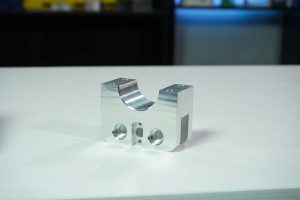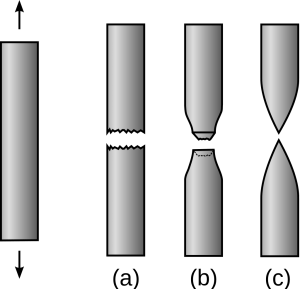Introduction: Acetal Plastic vs. Delrin
Acetal plastic, also recognized as polyoxymethylene (POM), is a thermoplastic polymer widely used for precision parts that require high stiffness, low friction, and excellent dimensional stability. This engineering plastic is characterized by its strength, rigidity, and resistance to wear which makes it a preferred choice in mechanical applications. On the other hand, Delrin® is a trade name for a homopolymer POM produced by DuPont. It shares many properties with acetal copolymers but provides slightly different mechanical characteristics due to its chemical structure, often leading to improved toughness and machinability.
Chemical Composition and Physical Properties of Acetal Plastic and Delrin
The molecular structure of Acetal Plastic, also known as polyoxymethylene (POM), comprises a series of -CH2-O- repeating units. This semi-crystalline thermoplastic stands out for its high strength, stiffness, and dimensional stability under various environmental conditions. Delrin®, on the other hand, is a homopolymer form of POM designed by DuPont, with a similar basic chemical composition but typically boasts enhanced mechanical properties due to its longer chain lengths and slightly higher crystallinity. When comparing their physical properties, both Acetal Plastic and Delrin exhibit low moisture absorption, excellent wear and abrasion resistance, and good electrical insulating characteristics. However, Delrin generally displays superior fatigue endurance and tensile strength, making it the preferred choice for applications requiring greater toughness.
Manufacturing Process of Acetal Plastic and Delrin
The production of Acetal plastic, also known as polyoxymethylene (POM), involves the polymerization of formaldehyde to form long chains referred to as polyacetals. This process typically occurs under carefully controlled conditions in a chemical reactor, requiring catalysts to ensure proper chain lengths and end-group stability. On the other hand, Delrin®, which is a brand name for a specific homopolymer POM, is manufactured by DuPont through a different version of polymerization that leads to a material with slightly differing properties than copolymer acetal plastics. The main distinction lies in the fact that Delrin uses an anionic polymerization process resulting in highly crystalline polymers offering superior mechanical strength and rigidity compared to its general POM counterparts.
Applications and Uses of Acetal Plastic and Delrin
Acetal plastic, known for its high strength and stiffness, is widely used in applications such as gears, bushings, and conveyor belts due to its excellent wear properties and dimensional stability. It thrives particularly well in the automotive and consumer electronics sectors where parts require both toughness and precision. On the other hand, Delrin, a homopolymer subtype formulated by DuPont, boasts enhanced creep resistance and fatigue endurance, which makes it ideal for small moving parts within vehicles or high-performance mechanical assemblies. Industries like aerospace and plumbing favor Delrin when creating components that must endure repetitive stresses while maintaining their form. Comparatively, while acetal copolymer provides superior performance at lower costs for general use cases, Delrin is selected for scenarios demanding exceptional durability and long-term reliability.
Performance Considerations of Acetal Plastic and Delrin
Durability and wear resistance are critical performance indicators where both acetal plastic and Delrin typically excel, with Delrin often being favored for its slightly higher mechanical strength and stiffness. In environments with continuous exposure to moisture or chemicals, the materials react differently; acetal plastic can be more susceptible to hydrolysis in hot water or high humidity conditions, leading to degradation over time, while Delrin generally shows a better resistance profile. When considering operating temperature ranges, it is important to note that both materials withstand similar temperatures for continuous use, usually up to 90-100°C, but Delrin can endure slighter higher temperatures for short durations without compromising its structural integrity.
Machinability and Fabrication
Acetal plastic is renowned for its ease of machining, allowing for high-speed fabrication while maintaining dimensional stability. This trait permits the creation of intricate parts without sacrificing precision or producing excessive wear on cutting tools. On the other hand, Delrin, a homopolymer subset of acetal, offers distinct advantages in fabricating resilience-specific components due to its slightly higher mechanical strength and stiffness. For example, when undergoing critical cutting operations, Delrin’s consistency can lead to enhanced precision. However, it might exhibit less flexibility compared to its copolymer counterparts under certain conditions. Therefore, choosing between Acetal and Delrin depends greatly on the specific requirements of the fabrication process and the desired properties of the final product.
Environmental Impact and Recyclability of Acetal Plastic and Delrin
The production and disposal of Acetal plastics contribute to environmental impacts, largely through the release of greenhouse gases during manufacturing and the challenges associated with end-of-life management. However, both Acetal plastics and specifically branded Delrin materials have recycling potentials that can mitigate these environmental implications. Although not biodegradable, Delrin can be mechanically recycled into new products, thus reducing waste and conserving resources. For instance, clean, uncontaminated scraps from Delrin processing can be re-melted and reused. This ability to recycle effectively plays a crucial role in limiting the product’s ecological footprint by diminishing the need for virgin material extraction and minimizing landfill contributions.
Cost Implications of Acetal Plastic vs Delrin
The financial considerations when choosing between acetal plastic and Delrin are pivotal for manufacturers and designers. Generally, standard acetal polymers can be less expensive than Delrin, owning to the scale of production and availability. However, Delrin, with its enhanced mechanical properties such as higher tensile strength, fatigue endurance, and superior dimensional stability, may offer greater long-term value in applications where these characteristics are essential. The durability and longevity provided by Delrin could reduce replacement frequency and maintenance costs, presenting a more cost-effective solution over time despite its higher initial expense. Ultimately, while upfront costs favor standard acetal, Delrin’s potential to extend product lifespan and improve performance can significantly influence overall economic efficiency.
Key Differences in Strength, Resilience, and Selection Criteria Between Acetal Plastic and Delrin
Acetal plastic and Delrin are often considered in applications requiring high strength and resilience. Delrin, a homopolymer, tends to have slightly better mechanical properties, such as higher tensile strength and creep resistance, compared to the copolymer structure of acetal plastics. Despite this, both materials exhibit excellent dimensional stability and fatigue endurance. Delrin is indeed a type of acetal, specifically the brand name for homopolymer acetal resin produced by DuPont. When choosing between these two, one might opt for Delrin for precision parts that require superior strength, while acetal can be selected for its improved chemical resistance and lower cost. Although both plastics are generally safe and comply with FDA regulations for food contact, it is crucial to assess any potential health or safety concerns related to machining processes or degradation over time. Environmental factors, such as exposure to moisture, may also influence the choice; acetal copolymers offer enhanced hydrolysis resistance, making them more suitable for moist environments than Delrin homopolymers.



